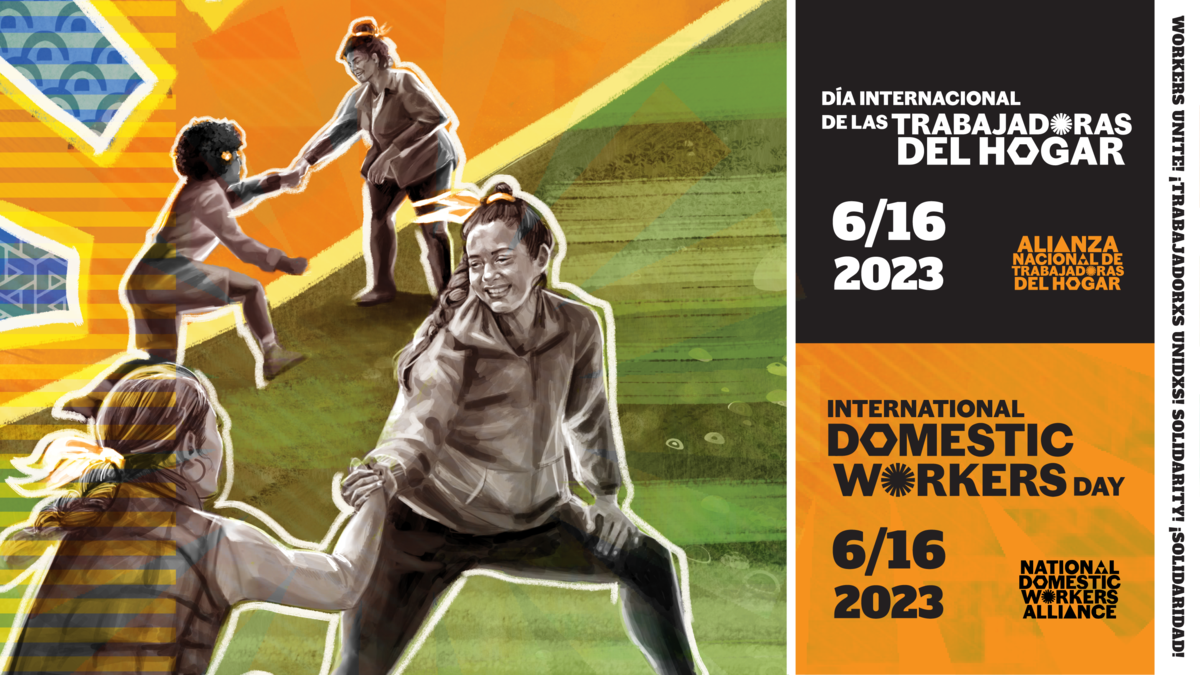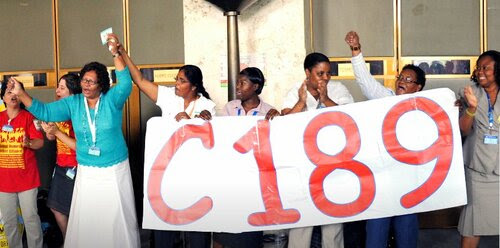
Today is International Domestic Workers Day, a day dedicated to recognizing the work and contributions of domestic workers worldwide. The day was first celebrated on June 16, 2011, after the International Labour Organization (ILO) adopted the Convention Concerning Decent Work for Domestic Workers.
Despite their invaluable work, domestic workers — nannies, housecleaners, and home care workers — are three times as likely to live in poverty as other workers and face employment insecurity and retaliation too often. International Domestic Workers Day serves as a reminder that domestic work is real work and every domestic worker deserves to be valued, protected, and honored.
Commemorate International Domestic Workers Day and stand in solidarity with the 2.2 million domestic workers in the U.S. and the millions more around the world by taking action today!
Read the articles below to see how you can get involved and help us spread the word.
Celebrate & Share on Social:
We continue to speak out in support of the federal proposal to guarantee that a fair share of Medicaid funds go to wages of workers who provide hands-on services and direct care for our aging and disabled loved ones.
On April 18, 2023, the Biden Administration released an Executive Order on increasing access to high-quality care with over 50 directives to federal agencies, including proposals on how to specifically support the direct care workforce.
In response, the Department of Health and Human Services is now considering a rule that would ensure that 80% of public funds spent on personal care services to support older adults and persons with disabilities in their homes and communities goes directly to worker compensation! To make this proposal a reality, we need the government to hear us.
In observance of this momentous day, our chapters and affiliates are organizing activations nationwide to raise awareness and strengthen protections for domestic workers:
by June Barrett, member of the Miami Workers’ Center and NDWA.
This past April, hundreds of domestic workers assembled at the White House. This type of gathering is illegal in other countries. We are so privileged in our movement in the U.S. — it’s easy to forget that when we have to fight for such basic rights like the right to a lunch break, or paid sick days.
But just because workers in some countries don’t have the right to assemble, don’t feel sorry for them! They are brilliant and they are POWERFUL women.
After a recent speech at the American University of Beirut, I spent four days with domestic workers from the Philippines, Cameroon, Madagascar, Nepal and Nigeria. I can tell you these women are not messing around! As much as I might have inspired them, they inspired me!
We must always remember that we are part of a global movement for women and the work we do connects us to one another.
This International Domestic Workers Day, think of the domestic workers around the world who are fighting, because when we win, we’re paving a new future for care in the U.S, and we’re blazing a path for the global domestic worker movement!

In the early 2000s, domestic workers organized to receive recognition from the International Labor Organization (ILO). The ILO passes non-binding conventions or resolutions about labor issues and helps 183 member states to convert conventions into laws.
After two years of negotiations, domestic workers won Convention 189 on June 16, 2011. The convention outlined protections for domestic workers, including wages, hours, and benefits. It was the first convention on domestic work.
Celebrate International Domestic Workers Day and donate now to help us build grassroots worker power and support NDWA as we fight for the millions of nannies, housecleaners, and care workers who care for us!